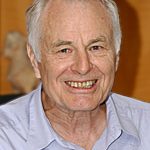
Dagfinn Føllesdal
C. I. Lewis Professor of Philosophy, Stanford University, USA
Born in 1932, Prof. Føllesdal studied science and mathematics at the University of Oslo and University of Göttingen from 1950 to 1957, and later studied philosophy at Harvard University and received a Ph.D. in 1961. After graduation, Prof. Føllesdal taught philosophy at Harvard for three years. He then returned to Norway and became Professor at the University of Oslo in 1967, a position he held till his retirement in 1999. Besides his teaching position at Oslo , Prof. Føllesdal was also Professor from 1968 to 1976 and then C. I. Lewis Professor of Philosophy from 1976 till now at Stanford University.
In the past 40 years, Prof. Føllesdal has been a visiting professor in many institutions, including the University of California, Berkeley (1971), Collège de France (1977), University of Auckland (1982), University of Salzburg (1992, 2001), University of Frankfurt (1997-98), London School of Econimics (2002), École normale supérieure (2003) and Witten/Herdecke University (2005).
As a world renowned scholar, Prof. Føllesdal’s contribution to philosophy has earned him numerous prizes and honors. They include the University of Oslo Research Prize (1995), Alexander von Humboldt Research Prize (1997), Nansen Prize for Research from Norwegian Academy of Science and Letters (2003), the Lauener Prize (2006), and Doctor honoris causa conferred by the University of Stockholm (2003).
In March this year, Prof. Føllesdal was appointed Commander of the Royal Norwegian Order of St. Olav by the King of Norway, in recognition of his contribution to philosophy and ethics as well as his special contribution as a bridge between Anglo-American analytic philosophy and European continental philosophy.
Professir Føllesdal authored five books and edited more than a dozen others, including The Philosophy of W.V. Quine in five volumes. He has also authored numerous articles, many of which have been translated into different languages, including French, English, Portuguese, Spanish, Swedish, Russian, Czech as well as Chinese.
As the twelfth holder of the Tang Chun-I Visiting Professorship, Professor Føllesdal will offer a public lecture, a four-week graduate seminar on “The Life-World: Intersubjectivity and Ethics,” and a departmental seminar in the Department of Philosophy.
Husserl and Gödel on the Philosophy of Mathematics

Professor Dagfinn Føllesdal
It is not widely known that there was a connection between Husserl and Gödel. Gödel’s Nachlass shows, however, that Gödel studied Husserl’s work carefully and regarded it highly.
After a brief presentation of Husserl’s view on mathematical objects and on justification in mathematics I will discuss Gödel’s view on these two themes. I will devote special attention to Gödel’s realism and the relation between this and the constructivist view that one finds in Husserl.
Gödel’s view on mathematical intuition will be discussed and compared to that of Husserl. In particular we will look closely at his view that mathematical intuition and perception of physical objects are very similar to one another.
The comparison between Husserl and Gödel throws light on the following passage in the appendix that Gödel added to his article ”What is Cantor’s continuum problem?” when this was reprinted in Benacerraf and Putnam, Philosophy of Mathematics: Selected Readings in 1964, and which is often regarded as mysterious:
That something besides the sensations actually is immediately given follows (independently of mathematics) from the fact that even our ideas referring to physical objects contain constituents qualitatively different from sensations or mere combinations of sensations, e.g., the idea of object itself … . Evidently, the ‘given’ underlying mathematics is closely related to the abstract elements contained in our empirical ideas. It by no means follows, however, that the data of this second kind, because they cannot be associated with actions of certain things upon our sense organs, are something purely subjective, as Kant asserted. Rather they, too, may represent an aspect of objective reality, but, as opposed to the sensations, their presence may be due to another kind of relationship between ourselves and reality. (pp. 271-272)
The Life-World: Intersubjectivity and Ethics
30 Oct 2009 (Fri)
6 Nov 2009 (Fri)
13 Nov 2009 (Fri)
Edmund Husserl, whose 150th birthday we are marking this year, is the main source of inspiration for almost all so-called continental philosophy: Heidegger, Sartre, Merleau-Ponty, Gadamer, and very many of the French structuralists, deconstructivists and postmodernists studied Husserl and learned from him. They all appreciated Husserl’s insights into the nature of the subject and subjectivity. However, only few of them paid attention to his very careful study of intersubjectivity, although Husserl already in his first major work, the Prolegomena to the Logical Investigations, argued that a subjectivist philosophy is untenable. Starting from subjectivity one has to work one’s way through intersubjectivity to objectivity.
The course will begin with a survey of Husserl’s philosophy as a whole, what motivated it and how it developed. We will then go on to study carefully Husserl’s view on subjectivity, intersubjectivity and objectivity. Husserl’s reflections on intersubjectivity form the foundation for his work on ethics, which will be the main topic of the later part of the course.
Reading Lists
Edmund Husserl, Ideas, Part Two, Chapter 1 + Part Three, Chapter 3 (= §27-§32, approximately 12 pages + §87-§96, approximately 25 pages) Edmund Husserl, Cartesian Meditations , Fifth Meditation + Conclusion (= §42-§64 of the book, approximately 67 pages)
Both volumes have been published in German and in English by Nijhoff (later taken over by Kluwer and now Springer). However, Husserl’s texts are written in a complicated language and if there are good Chinese translations of these two works it will probably be easier for the students to read these texts in Chinese.




